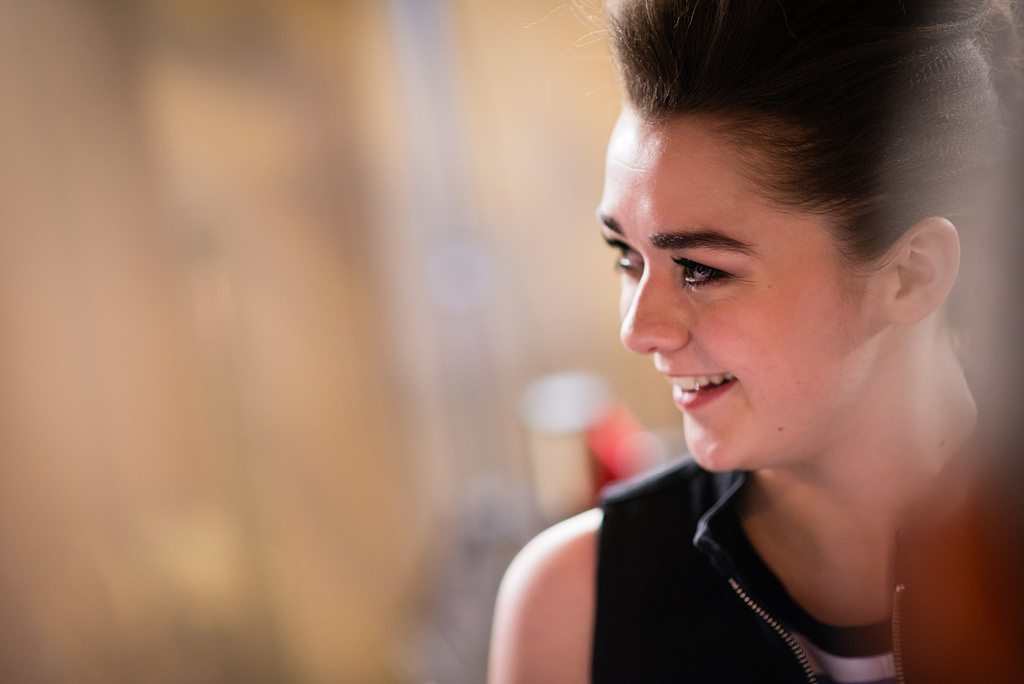The Girl Who Died
[dropcap]E[/dropcap]arlier this year, anyone tuned into the science fiction/fantasy world experienced the collective sound of two fandoms imploding. Yes, this was the news that Game of Thrones’ Maisie Williams would be guest starring in two episodes of Doctor Who.
The amount of speculative theories as to the identity of William’s character had left me with a slightly bitter taste prior to viewing – it felt as though there was such a weight of expectation from fans for her to be a crucial part of the Who-niverse, that the reality was always going to be a letdown. The suggestions ranged from her being the Doctor’s granddaughter Susan (Carole Ann Ford), to the Rani (Kate Mara; think of a Time Lady who specialises in camp one liners, and you’re along the right lines).
So what was thoroughly refreshing was to see the production team take the character of Ashildr in the completely opposite direction. Rather than being some elusive blast from the past for the Doctor (Peter Capaldi), she was introduced with a lack of pomp. Indeed, she really felt like a relatively low-key aspect of the episode until her one-on-one scene with The Doctor.
I personally applaud the decision of Moffat not to provide the character with a convoluted back-story, but simply to allow Williams to play a normal girl affected by extreme circumstances (how very Arya Stark!). The episode itself was something of a throwback to a classic Doctor Who romp – the Viking setting may not have been a model of historical accuracy, but it certainly felt more novel than yet another Who historical set in the Victorian era.
Even more exciting was the little flashback that we got to 2008’s ‘The Fires of Pompeii’, simply because any episode which manages to feature a glimpse of Catherine Tate is made infinitely better by her presence. (Oh Donna, how we miss you!)
The way in which the story has been structured is also highly effectual.
It’s been really welcome to see the two-parter making a triumphant comeback this season, after being somewhat neglected in recent years
Simultaneously, this format risks drawing a story out to the point where it becomes stale. The plot of this particular episode would feel ineffectual if played over ninety minutes of screentime, so it feels apt that the Viking storyline is resolved within the course of one episode and it’s the character of Ashildr herself who becomes the linking component between the narratives of ‘The Girl Who Died’ and ‘The Woman Who Lived’.
If anything, it provides far greater scope for Williams to play with, as we also get to see her in an entirely different time period as a far more jaded version of Ashildr.
The episode also saw the development of a growing pattern of reckless behaviour from Clara (Jenna Coleman), encapsulated in the Doctor’s question: “What have I made of you?”
If there’s one thing I’ve really appreciated about the Capaldi years, it’s what the writers have made of Clara. Prior to Season 8, it felt as though she was a blank canvas in terms of character development, who merely popped up to deliver sassy comments, with Coleman’s obvious talents being wasted on sub-par writing. Indeed, she appeared to have fallen victim of the curse of how female characters are often portrayed during the Moffat era: relatively one-dimensional innuendo machines.
However, during the tenure of Capaldi, props must be given to the material she has been provided that both allows her to demonstrate her acting ability and adds depth to the character.
Consistent characterisation is a far cry from the days of Amy (Karen Gillan) having her newborn baby abducted and being upset about it for all of five minutes
All in all, this was another successful outing for a season of Doctor Who which has felt as though it’s firing on all cylinders, and it doesn’t hurt that Capaldi and Coleman are one of the best TARDIS duos in years. One can only hope that Season 9 continues to deliver.



Comments